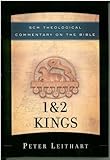 The unique selling point of the Brazos Series (also known as the SCM series) is that the volumes are written by theologians rather than biblical exegetes. In a fascinating series preface, the editor Rusty Reno calls into question the validity of approaches that attempt to approach the text of Scripture from a “neutral” mindset in which the expositor impassively and objectively gathers linguistic and contextual evidence, in order to eventually arrive at the “most probable” meaning of a given unit of thought. Rather, he argues that the church has always interpreted the Scriptures from within a theological framework (for example the Nicene Creed), and this serves to guide us as we make interpretive decisions.
The unique selling point of the Brazos Series (also known as the SCM series) is that the volumes are written by theologians rather than biblical exegetes. In a fascinating series preface, the editor Rusty Reno calls into question the validity of approaches that attempt to approach the text of Scripture from a “neutral” mindset in which the expositor impassively and objectively gathers linguistic and contextual evidence, in order to eventually arrive at the “most probable” meaning of a given unit of thought. Rather, he argues that the church has always interpreted the Scriptures from within a theological framework (for example the Nicene Creed), and this serves to guide us as we make interpretive decisions.
The difference in philosophy is apparent right from the start. In the introduction Leithart doesn’t spend his time discussing who wrote it, and when they wrote it, but rather makes a case for seeing Kings as “gospel”, and thus to be read in an “evangelical light”. 1-2 Kings is a prophetic narrative, making it clear that there is no salvation for Israel from within Israel: neither Wisdom, Torah or temple can save them. He also argues that Israel’s history is not only evangelical, but “ecclesial”, the history of the people of God – both Israel and Judah, though divided politically are viewed by Yahweh through the one lens of the covenant.
There is roughly one chapter of commentary per chapter of the 1-2 Kings. In his comments on the early part of 1 Kings, he draws out parallels between Solomon and Joshua, but also very compellingly shows how Kings presents Solomon as a “new Adam”, hence pointing forward to Christ. He shows how the idolatrous failures of successive kings effectively reverse the exodus and conquest, re-Caananizing the land of Israel.
Each chapter will typically contain something of an excursus as he goes off for a couple of pages exploring a subject raised indirectly by the text, sometimes theological, sometimes political, sometimes ‘ecclesial’. It makes for very lively reading, as he approaches many subjects from refreshingly different points of view.
Leithart is always looking for parallels and contrasts of the story of Kings and the story of Jesus. He ends each chapter by bringing Jesus into the picture, and thus it serves as a fine example of preaching Christ in all the Scriptures. In fact, often I would get to the end of a chapter and find myself wanting to preach a sermon on the passage – surely the mark of an excellent commentary.
Overall I would say its a great read, and definitely worth checking out if you are either preaching on 1-2 Kings, or want to be inspired to see them in a fresh light.

I didn’t read very much of it when I was investigating it, but I read it on several passages, and I was very disappointed after all the good I’d heard about it. I epxressed some of my reasons here (before going on to say one thing I thought was really good about his analysis).
Peter Leithart has been heavily influenced by James Jordan. Have you read anything by him? I feel as if on many levels, Leithart is popularizing Jim Jordan’s work (which I think Leithart would concede).
The Bible Speaks Today volume “The Message of Kings” by John W. Olley is due for release in February 2012, in the USA.